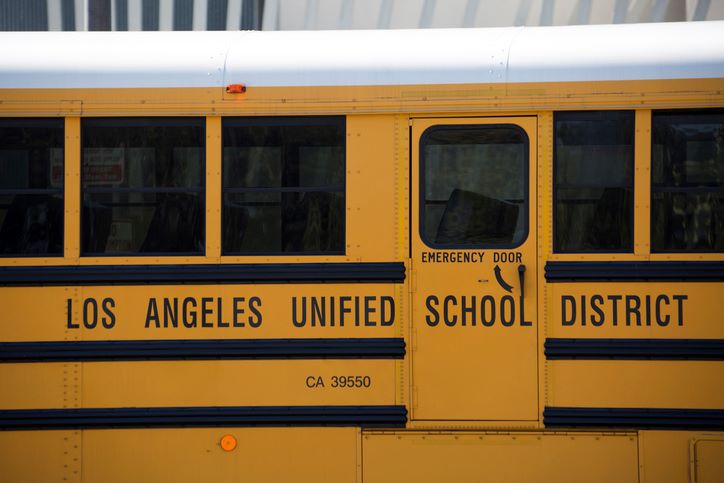At a Board retreat on Monday, the Los Angeles Unified School District (LAUSD) Board of Education took the first step toward addressing its financial future in a series of presentations and group discussions.
The district is currently operating at a deficit and the problem is expected to worsen without significant changes. Financial staff at the district reported, “If left unaddressed, these deficits will require serious, disruptive reductions as ending balances will be depleted.” At the retreat, Superintendent Alberto Carvalho stressed that the district is in a position to make the necessary budget cuts outside of the classroom – reductions with minimal impacts on students and teachers.
Statewide, many school districts are facing budget shortfalls with 110 districts anticipating teacher layoffs. These shortfalls are due in part to the cessation or reduction of funding from the state. Elementary and Secondary School Relief (ESSER), a federal fund created to address the impact of COVID-19 on schools, is ending in September. The state’s cost-of-living adjustment (COLA), which increases district funds based on inflation rates, is being reduced from 8.2 percent for the 2023-2024 year to less than one percent for 2024-2025. The State of California is currently facing its own budget shortfall of $73 Billion. To address it, Governor Gavin Newsom has introduced cuts like the COLA reduction and a $500 Million reduction in funding earmarked for K-12 facilities construction.
At the retreat, LAUSD financial managers confirmed that statewide austerity measures would affect the district’s operations in years to come. The Office of the Chief Business Officer (CBO) presented the budget outlook. They projected that the district’s general fund would be greatly reduced over the next six years – from $6.3 Billion in 2023-2024 to nearly $2 Billion in the negative in 2026-2027. They concluded that the district is unlikely to be able to increase revenue to address the deficit due to state-distributed funding drying up.
The question remaining for retreat attendees was where the budget cuts should come from. To end their presentation, the CBO and supporting staff prepared an activity for board members and other district attendees. On the table for reduction discussion were all items from the general unrestricted fund including custodial support, specialized programs, clerical support, the Black Student Achievement Plan, school police, and funding for central and regional LAUSD offices.
Retreat attendees were asked to consider potential budget trade-offs within these categories and assess each with the following framework: “1. Excellence (Operational): Is this program critical to the basic operational function of our schools? 2. Excellence (Academic): Is this program part of a critical strategy for academic achievement for all students? 3. Collaboration: Does this program reflect the interests and advocacy of our communities? 4. Equity: Is this program part of a critical strategy to close equity gaps for our highest-need students?”
This discussion is the beginning of a collaborative effort within the district to balance its budget while maintaining the integrity of its schools. Near the end of the day-long retreat, Superintendent Carvalho stressed that while budget cuts were certain, the district intended to continue being an outlier in the state.
Unlike other districts, LAUSD is not considering teacher layoffs and is not drastically slashing funds for student programs because, Carvalho said, “For us, teachers and support staff are indispensable.” While acknowledging the financial crises arising throughout the state, Carvalho said the district was better equipped than most to confront the challenge. He credited the district’s “good financial management” and continued that the district would pursue “Aggressive budget balancing strategies away from the schoolhouse.” Carvalho named class size reductions, historic salary increases, and equitable funding for all schools as successes LAUSD is carrying with them into the uncertain future. These initial discussions, Carvalho said, are crucial to confronting the budget. The problem isn’t going away, but if the district addresses it early and resolutely, it can mitigate the damage.
Photo by MattGush on iStockphoto.com
Stay informed. Sign up for The Westside Voice Newsletter
By clicking submit, you agree to share your email address with Westside Voice. We do not sell or share your information with anyone.







